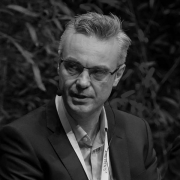 As the clean energy transition grows, there is increasingly a skills and talent gap. This is an article I had published in Smart Cities World (link to the original below).
As the clean energy transition grows, there is increasingly a skills and talent gap. This is an article I had published in Smart Cities World (link to the original below).
Throughout my time in the clean energy sector there has always been talk of scarcity of supply; first it was silicon, then in the boom times of solar development it was solar PV modules themselves. More recently we read of the potential scarcity of Lithium, a core ingredient for Lithium-ion and related batteries, driven by the significant growth in energy storage and EV Vehicles. Now we have scare stories about the scarcity of electricity at certain times of the day, if we all plug in our EV’s to charge. But what about the scarcity of talent?
Clearly as the clean energy transition grows, there is increasingly a skills and talent gap, one which is seldom talked about. Demand is very much outstripping supply. That might be a good thing, in the short term, for headhunters like us, but for the growth of the sector as a whole it is something that will significantly hinder the growth of companies and the smart energy and cities sector as a whole.
At utility scale, we have an ageing electricity generation and distribution network, managed by a hugely talented and experienced number of engineers. Significant numbers of which are at, or fast approaching retirement age. In a recent report, ‘Engineering 2017’*, it is suggested in the UK there is, conservatively, a 20,000-annual shortfall in graduates in engineering disciplines. That’s an annual shortfall. Not only are we not seeing enough graduates though, decades of hands-on practical experience is disappearing rapidly.
On top of this many parts of the smart energy sector are very nascent. Yes, batteries have been around for a very long time, but the energy storage sector, as we see and understand it today, is just a few years old. The same can be said of the e-mobility sector.
As for the digitisation of the energy supply, or the ‘internet of energy’, we’re making it up as we go along. There is no experienced talent pool. To exacerbate this problem, the demand for the new breed of coders, software architects and fully IT literate electrical engineers, doesn’t just come from the energy sector, or MaaS (Mobility as a service). These same individuals are in demand from Fintech, medical devices, and finance and banking, among others. It takes more than a dress down policy and bean bags to attract them.
The challenge must be met head on and quickly. The industry, in my opinion, must focus in three key areas.
Firstly, we need to encourage more children and those at school age into STEM subjects, then into engineering and computational subjects through higher education and into university. The industry needs to engage fully with the whole education system to make sure we get the raw talent we need.
Having a government that doesn’t politically interfere with education and curriculum would be a great start. In many of the most successful countries, such as Singapore and Finland, education is separated from the political sphere. We could do with the same for energy, but that’s another story. At least we need consistency and strong engagement between industry and educational establishments, and not just by the large corporations, but also SMEs and start-ups which are the backbone of the energy transformation.
Secondly, companies need to be far more prepared to look at transferable skills, and to be prepared to invest in training. This can be difficult, particularly for SME’s and start-ups. Time and resource are very tight, and the industry moves at break-neck speed. But if everyone is chasing the same very small talent pool, we’re creating a big problem, not least Premier League salaries and a transient workforce as an example.
My company, Hyperion Executive Search, have helped many companies, in the UK, US and Germany to find exceptional talent in allied industries, as well as directly from competitors. For example, it’s not a great leap for candidates from a solar background to adapt to the energy storage or e-mobility sectors.
People who have been involved in traditional lighting, HVAC, BMS or UPS companies, have the raw experience and capability to adapt to new digital and interconnected versions of the same. We always recruit as much for cultural fit, and the ‘soundness’ of the individual, as much as the skills and experiences they have. Companies need to show some patience at times, and recruit for the long term, not the potential instant fix.
Thirdly, as an industry, we really need to address diversity. In an already limited pool of talent, whether by accident or design, we limit our options by not recruiting or encouraging candidates from all genders, ethnicities and sections of society.
It’s shocking when we look at the lack of diversity in the people we place into new roles. Certainly not by our design, and not by design of our clients, but because of lack of alternatives.
I don’t believe in positive discrimination, the best person for the job should always be recruited, regardless of their age, gender, religion or sexual orientation. But I do believe we have a lot to do to encourage more diversity in the workforce. This starts with engaging with children at school, but we have to find a way to engage with all sections of society at all stages of their careers. Otherwise we not only limit the pool of talent, but we limit our potential as businesses and as an industry. Diversity is good for innovation, for learning and for growth.
These are exciting times in the smart energy world, there is so much potential, innovation and opportunity happening all around us. We can’t afford to be stifled as businesses or a sector by the lack of talent, or a lack of willingness to actively broaden our horizons in regard to our people.
David Hunt is managing partner of clean energy executive search specialists Hyperion Executive Search. He has been in the clean energy sector since 2007 and held posts on the Policy Board of the UK Renewable Energy Association (REA), chaired the Pan-European Energy Storage Alliance and sits on the Low Carbon Economy Board for the Liverpool City LEP. He also spent seven years as director of an award winning multi-technology renewable energy company, before setting up Hyperion in 2014.
*Engineering 2017 report www.engineeringuk.com/media/1355/enguk-report-2017.pdf
https://smartcitiesworld.net/opinions/never-mind-the-lithium-what-about-the-talent-asks-david-hunt

